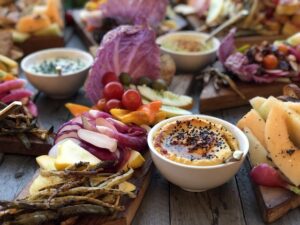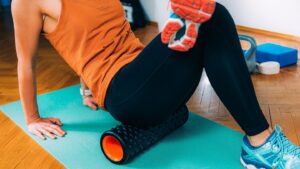There is a plethora of products on the market designed to help promote healthy hair. From specially formulated shampoos and serums to multivitamins and minerals, the list goes on and on. One of the newest additions to this list may come as a surprise: probiotics. Let’s explore what probiotics are and the connection they have to healthy hair.
First, what are probiotics? Found in supplements and a range of foods, probiotics are a type of yeast or live bacteria. These microbes keep the digestive system healthy by maintaining a balance between good and bad bacteria in your gut. As the research on probiotics grows, so too does the connection between gut health and other areas of the body, including hair health.
While many are conducted on animals, more and more studies are linking the use of probiotics to microbial reinfection prevention, relief of gastrointestinal issues and improved immune health. These findings on the benefits of probiotics in relation to the immune system further support their impact on hair health. How so? The wellbeing of the immune system has long been linked to skin and hair follicle health. Additionally, researchers believe probiotics impact hair growth as they may help fight inflammation, reduce stress and balance hormones.
According to several scientific reports, certain strains of probiotics may lead to an improvement in overall hair health. The first of these is lactobacillus acidophilus. Comparatively common among probiotics, lactobacillus acidophilus is part of the lactic acid bacteria group. These “good” bacteria work to break down carbohydrates and combat bacterial overgrowth. Incorporating lactobacillus acidophilus can be rather straightforward as it’s found naturally in yogurt and many other fermented foods.
Another common probiotic is Bifidobacterium animalis. Known to aid in digestion and healthy large intestine function, this strain may also support hair health by preventing yeast infections — which could cause hair loss and dandruff. You can find it in some dairy products as well as supplements. While taking supplements could be an easy way to add more probiotics to your diet, it’s important to speak with your doctor first. Doing so can help determine the correct dosage and if there are any possible side effects due to certain immune system conditions.
Instead of probiotic supplements, you could opt to incorporate fermented foods into your diet. Such naturally occurring probiotics often contain short-chain fatty acids and can provide additional immune-boosting support. Examples of probiotic-rich foods are miso, pickles, kimchi, tempeh, buttermilk, sauerkraut and, of course, yogurt. You could also maximize the potential benefits of these by pairing with dishes rich in prebiotics, such as soy, garlic, wheat, asparagus and onions. Pairing like this helps to provide enough sustenance for the probiotics you consume to survive and flourish in your gut.
For further information on the benefits of probiotics and their connection to hair health, please see the accompanying resource.




